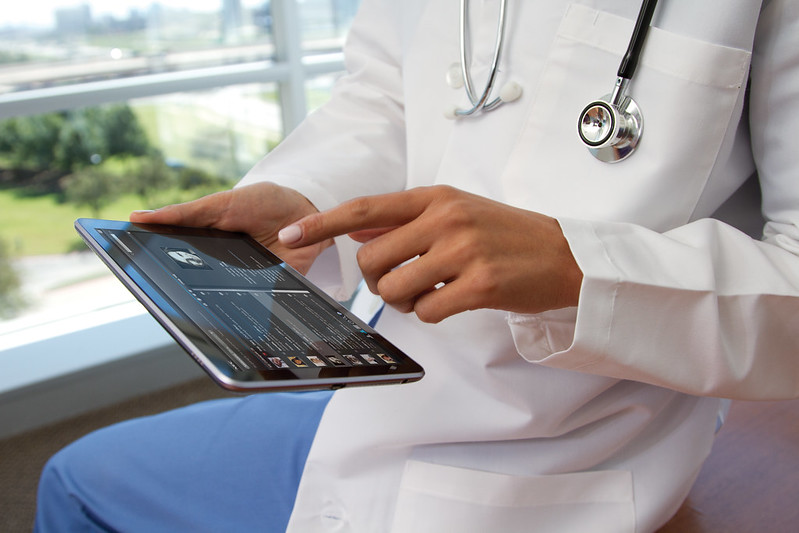With a virus as contagious as the COVID-19, healthcare workers are at an extremely high risk of contracting it themselves, as we’ve seen play out all over the world.
Masks, respirators and face shields are all vital to protecting healthcare workers during the pandemic, but the best way to protect people from getting infected is to limit exposure. At ChristianaCare hospitals, one of the tools used to minimize that exposure is the humble iPad.
“We’re connecting with patients via iPads to get history and talk to patients [via Skype] about plan of care, limiting the exposure to COVID in the room,” said Dr. Sajid Noor, the assistant director of quality and safety for the Acute Medicine Service Line at ChristianaCare and medical director of the transitional medical unit at Christiana Hospital in Newark.
“If I’m a physician, rather than me spending the time in the room with the patient, prolonging my time of exposure by getting a history, then giving a physical, and then also talking about plan of care, I can cut that down substantially by getting the history and talking about plan of care outside of the room via the technology and limiting my exposure by just doing the hospital exam,” Noor told Technical.ly.

The digitally minded Delaware health system had already been using iPads it had on hand before the pandemic.
“We were already getting into this technology, but because of what’s going on right now, they went ahead and used whatever we had in house and repurposed them for this,” Dr. Noor said. “Our goal is to get one iPad for every patient in our hospital system.”
That’s 1,400 iPads, if they have one iPad per bed — a number they are starting to close in on with more of the devices on order.
The internal telemedicine system isn’t just for doctors.
“This is also for nursing, social workers and case managers as well as dietary [professionals],” Dr. Noor said. “Anyone who’s going to be interacting with the patient, if they don’t physically need to be in the room, this is a way to do it.”
The iPad system was implemented in the hospitals within a week. So far, it’s been running smoothly, according to the doctor.
“We’ve been meeting every day to tweak any issues based on provider feedback,” he said. “I’ll have two meetings a day: One is to talk about the planning of how we implement this, and then later in the day we’ll have a meeting with a hospital group to get feedback from them. We try to keep it simple . So far we haven’t had any major systemic issues. Things have been running every day. Doctors have been using them every day since we’ve implemented it.”
This system is something that was on the horizon before the pandemic, and it will continue after the crisis is under control. You can expect to see iPads in ChristianaCare hospital rooms, whether patients are known or suspected of being coronavirus positive or not, going forward, Dr. Noor said: “This is something that we want to transition to for the long term.”







